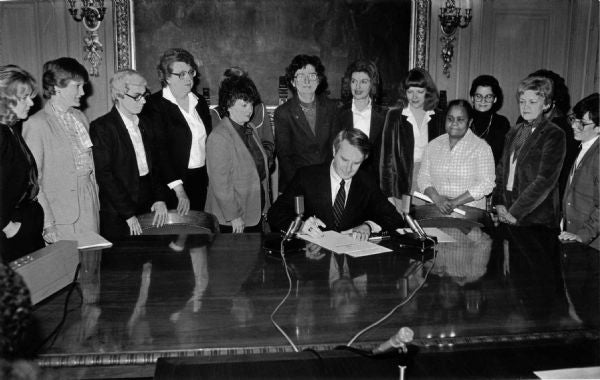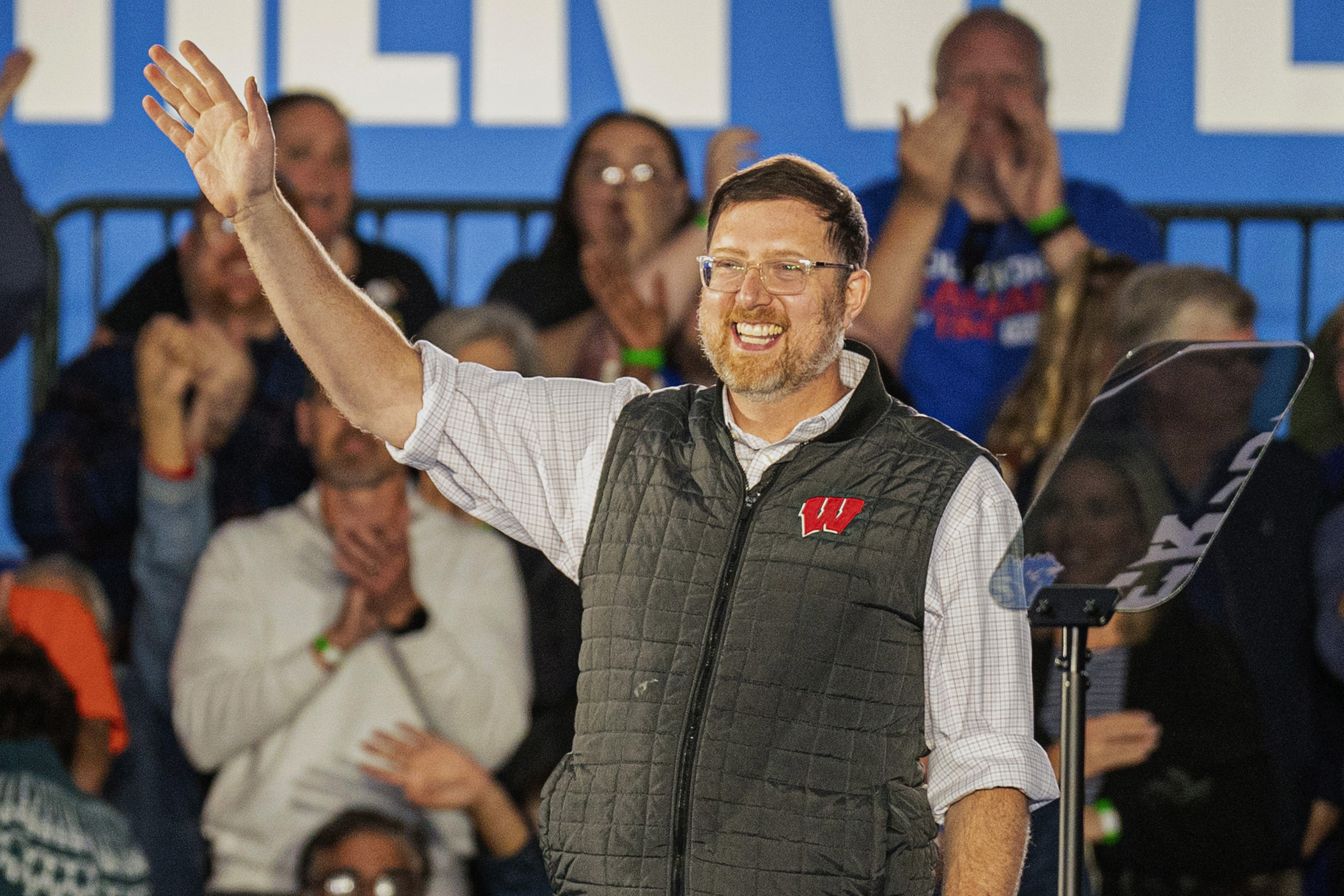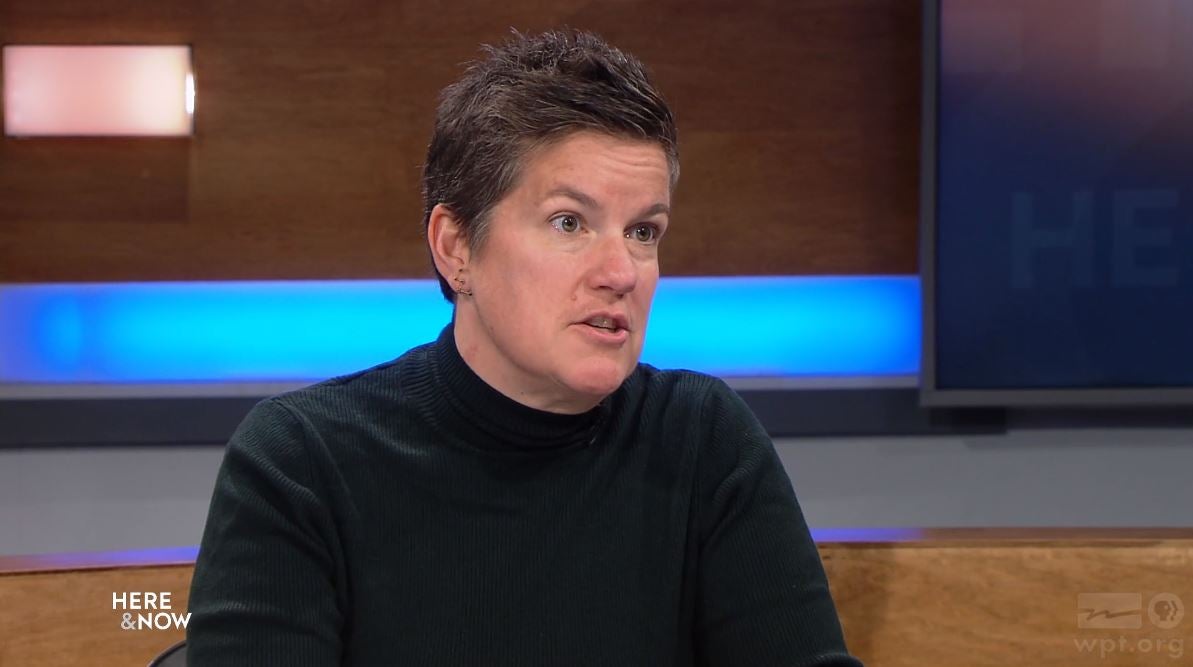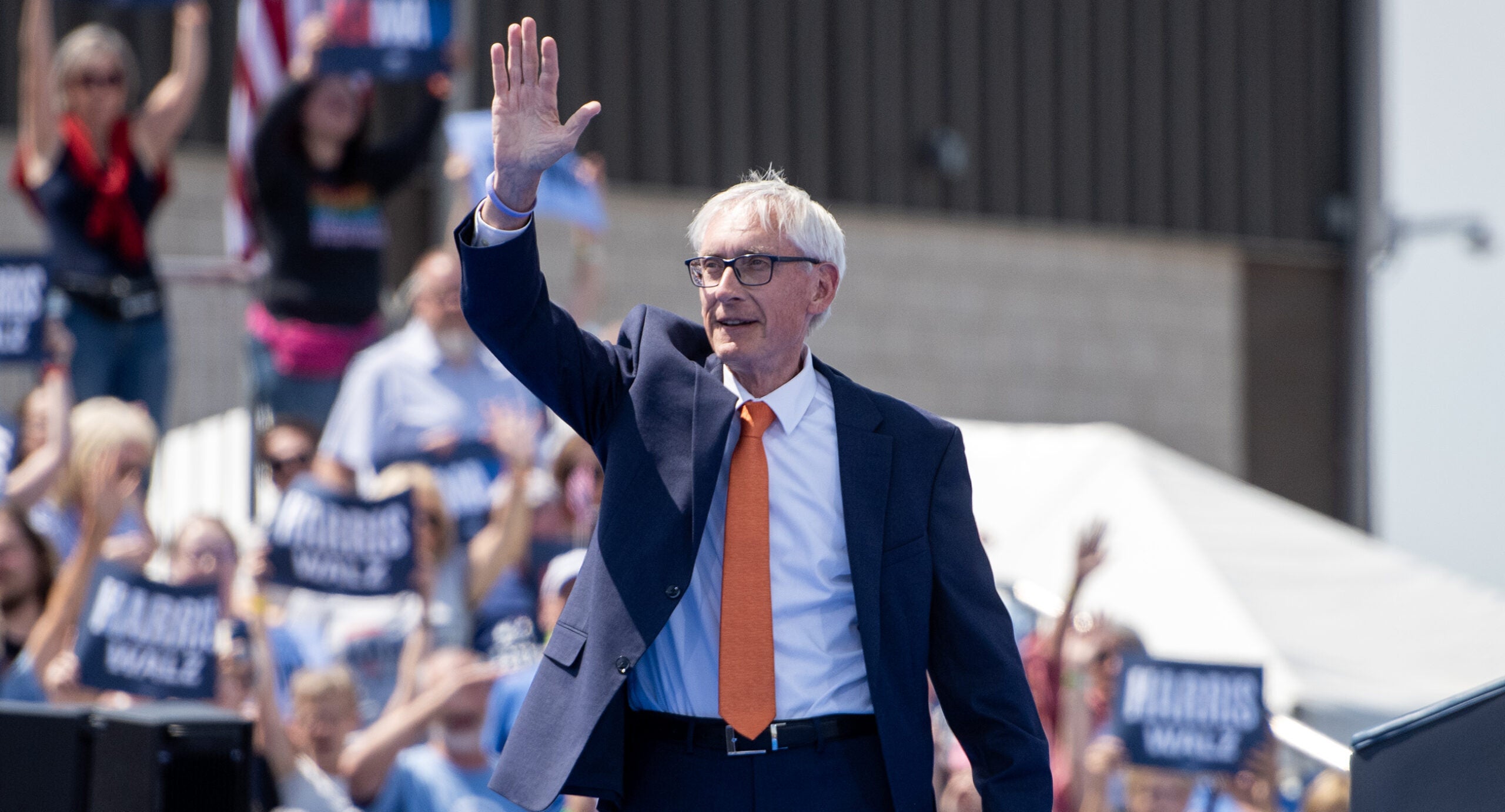Tony Earl, the 41st governor of Wisconsin who championed a progressive agenda but renounced partisan politics, died Thursday surrounded by his daughters and close family. He was 86.
Earl’s passing was announced in a statement from Gov. Tony Evers, whose office said Earl suffered a stroke this past weekend. Earl’s family also issued a statement through the governor’s office, expressing thanks for the love and support they’d received.
“Our dad would have been honored by the outpouring of gratitude expressed by all. He would encourage anyone he knew to actively engage in positive change,” said Earl’s four daughters, Julia, Anne, Maggie and Kitty.
News with a little more humanity
WPR’s “Wisconsin Today” newsletter keeps you connected to the state you love without feeling overwhelmed. No paywall. No agenda. No corporate filter.
Evers issued an executive order honoring Earl and ordering flags to be flown at half-staff.
“Tony was always a staunch defender of our state’s proud traditions, including conservation, and his passing is a significant loss for our state and for all who had the fortune of meeting and serving with him,” Evers said. “His wisdom and wit will be well missed.”
The governor’s office said details of a celebration of Earl’s life would be announce at a later date by his family.
Earl was elected governor in 1982, serving one term from 1983 to 1987. A Democrat, he served at a time when his party also controlled both houses of the Wisconsin Legislature, giving him broad leeway to advance his agenda and leaving Republicans all but powerless to stop it.
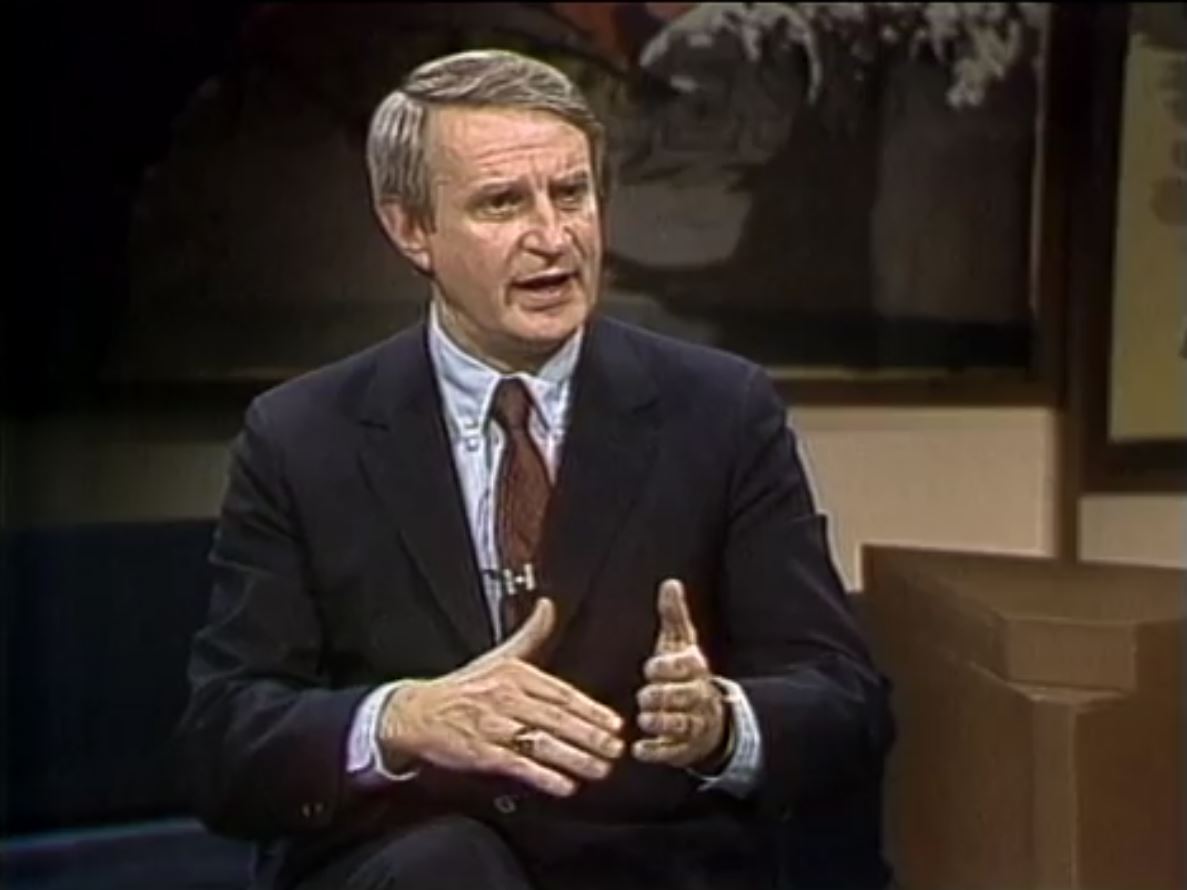
They had difference of opinion at the time, said former Republican Gov. Tommy Thompson, who was a GOP lawmaker at the time. Thompson got to know Earl when they served together in the state Legislature in the 1970s.
“Tony was a dear friend,” Thompson told Wisconsin Public Radio Thursday. “A gentleman first and always.”
Thompson went on to defeat Earl in the 1986 governor’s race, but he said they remained close.
“I can still see that ever-present bright Irish smile, even in the throes of disagreement,” Thompson said. “He was patient and kind.”
Democratic U.S. Sen. Tammy Baldwin, who served as an intern under Earl, called him a friend and mentor.
“Governor Earl was always a shining example of what is good about government and the good that government can do, working with Republicans and Democrats to deliver for Wisconsinites and always putting people over politics,” Baldwin said in a statement. “Governor Earl represented the best of the Wisconsin tradition.”
U.S. Rep. Mark Pocan, a Democrat from Dane County, said he volunteered on Earl’s first campaign for governor when he was in high school.
“It’s where I cut my teeth in state politics as a young Democrat,” Pocan said in a statement. “From the first day I met him, he was always the most gracious person, with the goal of cultivating a Democratic bench for the future. Politics was never personal to him, and I’ve taken that lesson to heart. I will miss him. My thoughts are with his family today.”
State Sen. Robert Cowles, R-Green Bay, who served in the Legislature when Earl was governor, remembered Earl taking the time to attend the funeral of former Republican state Sen. Mike Ellis after Ellis died in 2018. Cowles said Earl himself was ill at the time.
“That was just the type of man who Tony Earl was, and why he was admired,” Cowles said.
Born in Michigan in 1936, Earl graduated from Michigan State University in 1958 and received his law degree from the University of Chicago in 1961.
He served in the Navy, then as Marathon County assistant district attorney and Wausau city attorney before he was elected to the state Assembly in 1969.
Earl ascended to Assembly majority leader in 1971, then left the Legislature for a brief stint as secretary of the Wisconsin Department of Administration under Democratic Gov. Patrick Lucey.
Earl spent five years as secretary of the Wisconsin Department of Natural Resources, serving under the administrations of Govs. Lucey, Martin Schreiber and Lee Dreyfus.
‘An invigorating new chapter in Wisconsin’s history’
When Earl took office in 1983, the state and nation were reeling from a severe recession. Unemployment was high, and state government funds were low.
During his inaugural address, he called it the “harshest economic winter” in many peoples’ lifetimes, but said he considered himself “very, very lucky,” and could think of no place he’d rather be.
“I didn’t seek this job because I expected a life of ease or because I plan to simply ride out the storm,” Earl told a crowd gathered in the state Capitol rotunda that day. “I sought this job because I believe we have in our current economic distress, an opportunity to write an invigorating new chapter in Wisconsin’s history of progressive and innovative government.”
Earl asked his audience to reflect on the defining characteristics of Wisconsin, and what distinguished the character of its people.
“The people of Wisconsin have always been conservative, in the best sense,” Earl said. “We have not purchased the present by mortgaging our future.”
Earl said the immigrants who settled Wisconsin believed that in order to be more than just a collection of regions and towns, the state needed to become a community.
“One of the goals of this administration will be to renew and strengthen that sense of community that makes Wisconsin unique,” Earl said. “Here, Democrats, Republicans, progressives, socialists, stalwarts, all have shared in a consensus and a commitment to look beyond the narrow and the parochial to the long term welfare of the citizens of this state.”
Earl credited both parties with building Wisconsin’s university system and its network of parks and forests, for protecting its clean air and water, and for Wisconsin’s reputation as a good government state.
“I do not believe that we went to the painstaking generation-by-generation work of building our quality of life, only to have it threatened by a single prolonged dip in the national economy,” Earl said. “And I do not accept the proposition that the price for our economic survival must be social or moral retreat.“
Earl promised to balance the state’s books, saying the people of Wisconsin did not expect their elected officials to be “timid.” He promised to not only manage the state’s economic crisis, but to “banish” it.
“My enthusiasm for the task I undertake today is based on my strong belief that the ‘me generation’ never really took hold here in Wisconsin,” Earl said. “The human values of love and caring are the ones that we hold most dear.”
Earl dealt with the budget shortfall head-on. He signed into law temporary increases in the state’s income and corporate taxes and made permanent a 5 percent sales tax.
To pay for roads, he signed into law what’s known as “gas tax indexing,” which automatically increased the state’s gas tax to keep up with the cost of living. Earl got the idea from Lowell Jackson, one of his Republican opponents in the 1982 governor’s race. Jackson served as Earl’s first transportation secretary.
Those decisions helped fund the priorities Earl spoke about in grand terms during his 1983 inaugural address, though they may have cost him the 1986 governor’s race, when Thompson labeled Earl “Tony the taxer.”
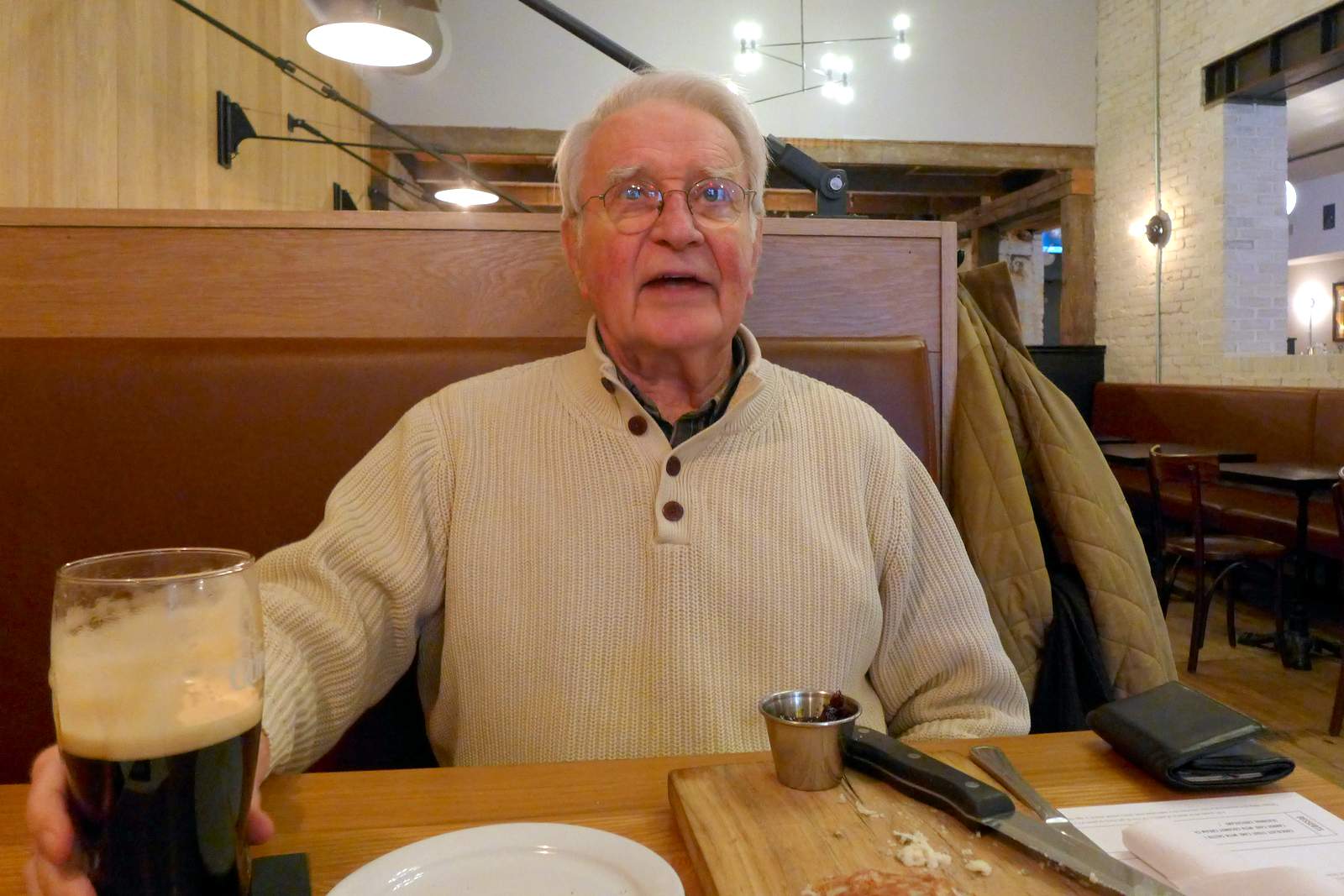
Reflections on a legacy
But in a 2017 interview with WPR, Earl downplayed both moves, and said other decisions defined his legacy as governor.
“It sounds like I’m blowing my own horn, but when I was in office, I knew I had a chance to make a mark in some areas,” Earl said. “So, by God, I took full advantage.”
Earl said one of his biggest accomplishments was a five-state compact with other governors to protect the Great Lakes. He said he was worried that without protection, there might be an effort to sell the lakes’ fresh water to Southwest states, an idea proposed by his predecessor, Republican Gov. Lee Dreyfus.
“We are all opposed,” Earl said. “Everybody bought on. So we had a cohesion of interests about protecting the Great Lakes.”
When asked about the other big things he was able to do, Earl described the way he ran state government, putting more women in positions of power. He named Doris Hanson as his secretary of the Department of Administration.
“I’d like to think I elevated the role of women and state politics,” Earl said. “The governor’s ‘right hand man’ was a woman. And I made a number of appointments of women to state positions.”
Earl also listed his support for gay rights as a top accomplishment. As governor, he supported measures banning discrimination on the basis of someone’s sexual orientation. He also appointed an openly gay man as his press secretary, which made headlines at the time.
“That was very controversial,” Earl said. “I didn’t understand it then. I don’t understand it now. But it’s got to be most of the one enduring prejudices in our society.”
As Earl spoke in 2017 from a downtown Madison tavern, he sipped on a Guinness, uncomfortable at questions about his greatest accomplishments, or his views on the politics of the day.
“I think it’s somebody else’s time,” Earl said. “I realized that I’ve rounded third, and it’s not my call anymore.”
Earl said his answers to questions about a legacy felt “self-serving,” but he spoke warmly about the people with whom he served in Wisconsin state government.
“I really enjoyed politics back then,” Earl said. “It was anything but a blood sport … I know that’s nostalgia run amok, but it wasn’t.”
Wisconsin Public Radio, © Copyright 2026, Board of Regents of the University of Wisconsin System and Wisconsin Educational Communications Board.
